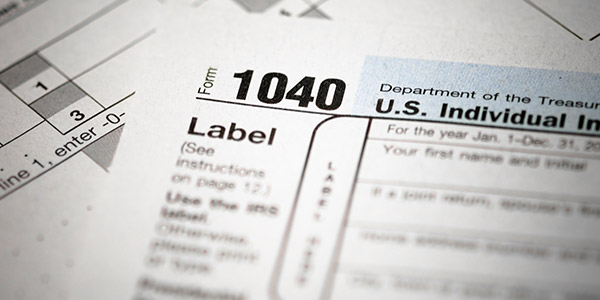Homeowners
5 Tips for Tax Time
March 1, 2017
While you have until April 18 to file your tax return this year, you may want to consider just going ahead and getting it done now. The reason is a compelling one: If you're getting a refund, the sooner you file, the sooner that money goes right back into your pocket for investing, saving, or spending as you wish.
Last year, more than 152 million individual tax returns were filed, and approximately 73 percent resulted in refunds. Those refunds averaged $2,860 each. That's money that goes right back into your pocket for immediate use toward meeting your financial goals, from saving for a down payment to helping you afford this year's home improvements. Typically, the later you file, the longer it takes for that refund to be returned to you. As Tax Day nears, the returns start to flood the IRS processing centers, and the wait lengthens. Even if you anticipate owing the IRS money, the sooner you know what you owe, the more time you'll have to raise the necessary cash to make your payment by April 18.
Tips for Getting the Most Out of Tax Season
The person who looks forward to tax time, and whose title doesn't include the letters "CPA" is rare. However, it doesn't have to be a chore for the rest of us. Here are some tips for getting your return done in a way that can pay off in the end.
1. Check your answers.
The most common filing errors involve typos in Social Security numbers, reported income numbers that don't match those filed electronically with the IRS by employers, and simple math errors. Many of these can be avoided by checking your entries. An advantage of using one of the online services is that they will run a preliminary check and highlight anything that doesn't add up.
2. Say "yes" to itemizing... or at least verify that you don't need to.
Filing the short form and accepting the standard deduction is much quicker than using the longer form. However, if you made any charitable donations, live in a state with a high tax rate, or have other deductible expenses, choosing speed and ease could be costing you in actual dollars and cents. A tax professional will be able to advise which is best for you.
3. Make yourself more at home with home office deductions.
Among the most under-utilized deductions are those related to home offices. Many taxpayers may not realize that the IRS has made changes in recent years that make performing the necessary calculations and meeting recordkeeping requirements easier. For more on the specifics, visit the IRS's website or contact a tax professional.
4. Exhaust the possibilities.
The lists of legitimate Federal and state deductions are lengthy and worth checking. For instance, parents of children diagnosed with overbites whose orthodontist prescribes clarinet lessons may be able to deduct the cost of the instrument and the lessons. Similarly, swimming pools and gym memberships may be deductible if deemed medically necessary. You'll want to see a tax professional as well as a doctor, before entering these on your return, however.
5. Check for tax credits.
Tax credits are deductions are made directly against your tax bill, which makes them very appealing. While they come and go from year to year, if you made eligible home improvements-including replacing windows or exterior doors with more energy-efficient alternatives will want to see if you are entitled to any credits.
Taxes are inevitable. Getting them done earlier allows you to get on with your new financial year that much sooner.
NAF and its affiliates do not provide tax, legal, or accounting advice. This material has been prepared for informational purposes only, and is not intended to provide, and should not be relied on for, tax, legal, or accounting advice. You should consult your own tax, legal, and accounting advisors before engaging in any transaction.





 Smart Moves Start Here.
Smart Moves Start Here.